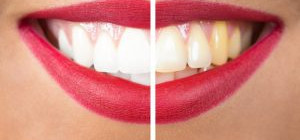Oral health is very important. None of us wants to suffer, having to deal with gums that bleed. Bleeding gums are one sign of an oral problem. This oral disease is known as periodontal disease. It is caused by bacteria in the gums that started with a dental plaque. This disease can not only affect your tooth or teeth for that matter but also your overall health and well-being.

By definition, “Periodontal,” was from the Latin words “peri” and “odontal.” ‘Peri’ meaning around, and ‘odontal’ meaning teeth. Periodontal includes the following: the gums, cementum, periodontal ligament and alveolar bone. Gingivitis is the early stage of this disease. Gingivitis only includes the gums, but when it gets severe, it will involve every other tissue in the teeth as well as in the mouth.
According to scientist studies, this periodontal disease is caused by bacteria in the dental plaque. This plaque is a sticky substance that forms in your teeth. When there is too much plaque on your teeth, it appears as brownish or black-ish color on your teeth. It sticks onto your teeth and helps inflame the gums and damaging them. It destroys not just the gums but also the alveolar bone. This is the start of gingivitis. Other people lose their teeth because of it. Once it turns severe, it will be called periodontitis.

As much as we all try to take care of our mouths, some things are inevitable. We acquire periodontitis without us knowing it right away. It is therefore important that we know the symptoms to have it treated at the onset. This way, we can minimize damaging our gums and have good oral health.
The following are the symptoms for periodontal disease:
- Bad breath that is constant
- Longer looking teeth because of receding gums
- Red, swollen, puffy or tender gums
- Gums that formed a pocket because it has pulled away from your teeth
- Pus that comes from in between your teeth and gums
- You feel that there is a shift in your teeth when you bite
Periodontal disease takes a while to develop and more research is needed in order to find out how this periodontal disease could affect someone’s health in general. In the meantime here are some of the things you can do in order to help yourself maintain good oral hygiene:

- Brush your teeth frequently. This does not need a whole lot of explaining. Growing up our parents should have already done their assignment in teaching us how to brush our teeth. By this time around, we can independently clean our teeth as part of our daily habit and maintain proper hygiene. The proper way to brush our teeth is up and down, left and right, making sure we are also brushing the teeth located on both cheek sides of our mouth.
- Regular visit to the dentist. Not everybody does this more often growing up, but the highly encouraged frequency to do so at least once in every six months. However, since most people are so afraid of seeing a dentist, they would only come visit him when badly needed. People with gum disease should see their dentist; more frequently than every six months. This way, they can be able to take advantage of the periodontal service that their doctors can provide.
- Daily flossing. Make sure that this has to be done correctly as well. Flossing will help remove those nasty plaques from your teeth. No need to further the explanation for flossing.

3. Dental cleaning. This refers to professional cleaning that is being done by your dentist. With dental cleaning, your doctor uses tools or devices that helps clean out your teeth including your gums. The procedure will help keep you plaques under control as it cleanses hard to reach area of your teeth inside your mouth.
Swelling gums are prone to tooth being detached from the gums. Periodontal disease has the ability to destroy the periodontal ligament and also the alveolar bone. For regular cleaning, using anti-tar-tar toothpaste helps in slowing the build-up of calculus and plaque that has already formed below the gum line.

If you miss doing any of the things above, never be surprised when plaques will build up on your teeth. Not removing the plaque will help multiply the bacteria, and help worsen the inflammation in your gums affecting your tooth. Worse, you will not be able to function very well because if it.
It will not hurt seeing a doctor at all. Brushing can only do so much, and will not be able to reach areas where the bacteria in the gums are. Daily brushing and dental visit should go hand in hand together. When they do, you bet yourself a great smile showing off your healthy oral condition.







